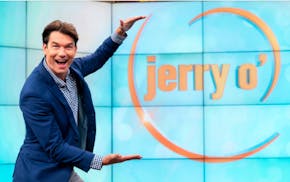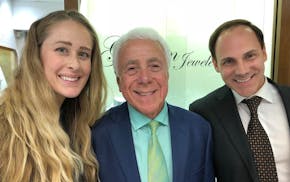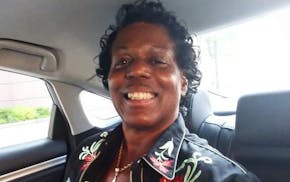"What made me drop the weight? You can only be 310 pounds if you play football. It's not good to be 310 in any other line of work," said Matt Birk at the Mall of America, where the former NFLer and Super Bowl 2013 winner was signing copies of his book "All-Pro Wisdom: The 7 Choices that Lead to Greatness."
He dropped 70 pounds and looked runway-model ready but insisted that he wasn't wearing a designer suit. Check out his threads in my startribune.com/video.
Q: Is it super special to win a Super Bowl after you've left a team that maybe didn't give you as good an offer as you wanted?
A: Naw, it's special no matter what. As I've said before, the Vikings were more than fair. I'd have probably let me go, too. All you care about is an opportunity to play and to play for a team that inspires you to be better than you would be on your own. And that's what I found in Baltimore.
Q: Would your Super Bowl victory have been better for you personally if it had come as a Minnesota Viking?
A: [Laughter] Well, I think so. Obviously, being from Minnesota I have a deep emotional attachment to the Vikings. They're the team I grew up watching and I'll always have that attachment. Being a hometown guy, to have been a part of the first Vikings Super Bowl — that'd have been cool. It's also cool the way that it worked out.
Q: How do you think your brain came out of playing football for such a long time?
A: [I] think time will tell. I didn't need a doctor to tell me that playing football was bad for my brain. Kind of figured that out, but football's a love of mine. For people who've played any kind of sport, competing, being part of something bigger than yourself, maybe those things are intoxicating. Maybe common sense doesn't always come into play. When you just look at the facts, does it make sense to play football and risk your life? Probably not. But when you look at it from the standpoint that you have to do something, if football ends up costing me years on my life or deteriorating the quality of my life down the road, I'm OK with that. For 15 years I got to absolutely love my job. It wasn't even a job. I got to love what I got to do when I left the house every day.
Q: So you believe in concussions?
A: Absolutely. Concussions are real. I'm evidence of that.
Q: When a passing play is called, does the QB tell the receivers at what specific yard mark the ball will arrive?
A: No, that's all figured out beforehand. The route called determines when the ball will arrive. That's probably the reason as football players we spend 95-99 percent of our time preparing. When we get to the game all that stuff is worked out.
Q: Peyton Manning yelled, "Omaha." What Minnesota specific word or landmark would you yell as QB?
A: Normally you have words that mean right and left. A good left one would be Duluth. It starts with a D but the L means left. You wouldn't want Richfield. A good right one would be Burnsville. It's complicated. Football is an intellectual game. It's not played by a bunch of dumb jocks.
Q: If you could give your fellow NFL football players one piece of financial advice, what would it be?
A: I think it's good to invest in things and learn things. And you will lose money. Everybody does. Just make sure if you fall down you only fall down one step and you don't fall down a whole flight of stairs.
Q: How would you like to see the financial arrangement change in terms of football players being compensated and in the area of guaranteed money?
A: Guaranteed money is always nice. I think we're identifying money or lack thereof as a big problem. The financial hardships of former NFL players, that's the symptom. The bigger problem here is guys, when they're very young are very good athletes. And that's how people identify them. When you're young you don't have the ability and wherewithal to keep developing in choosing your identity. That choice is essentially made for you. It's called identity foreclosure. So these guys go through grade school, high school, college, the NFL, and football is how they see themselves. When football is over and they have to be someone else that's when problems arise. The money thing is just a small part of that.
Q: Do you see a role for yourself in the league someday either with a team, the NFL itself or in media covering the league?
A: Yeah, I don't rule anything out. I got to work this year as a consultant for the NFL. It's meaningful work. The NFL is important to a lot of people.
Q: Is there a future in politics for you or in some area of public policy?
A: Maybe. When it comes down to it I don't plan or try to figure out what the future is. I never have. I never thought I'd play football for 15 years. I'm like everybody else. I want to have an impact, make a difference.
Q: Is your view in opposition to gay marriage still the same as it was when you wrote the Strib op-ed piece in October 2012?
A: Yes.
Interviews are edited. To contact C.J. try cj@startribune.com and to see her watch Fox 9's "Buzz."

C.J.: Jerry O'Connell gets support from Wendy Williams for talk show



